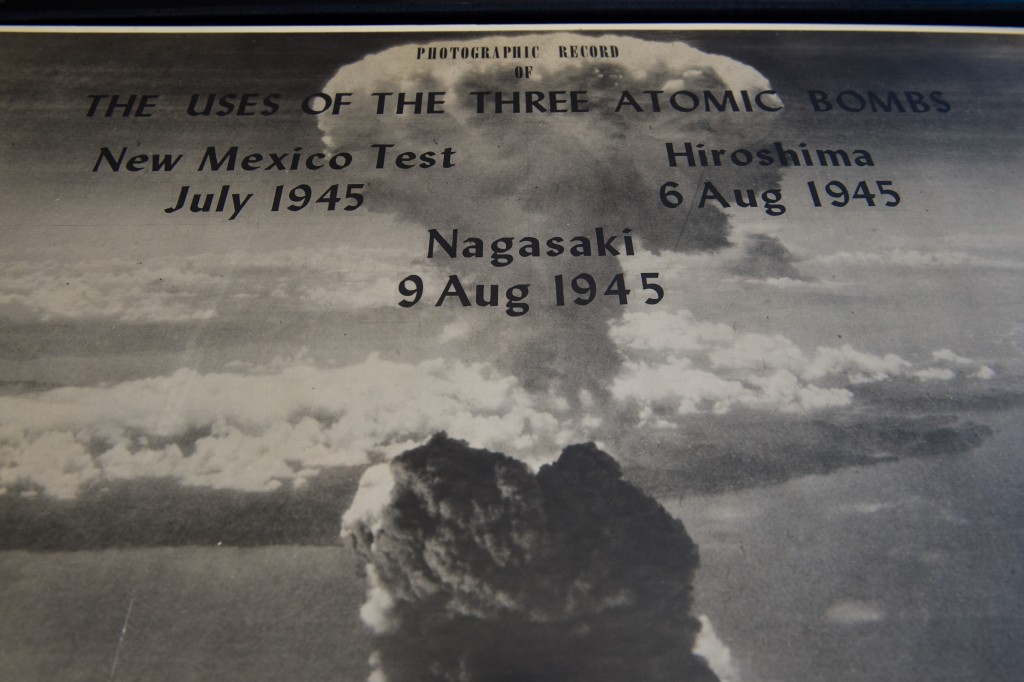
The institution has had the photographs since the 1990s, but Krepon last year decided to gift them to the Hiroshima Peace Memorial Museum. After some negotiation about where and how the photos would be displayed, they will be sent to Japan in the coming weeks.
/ AFP PHOTO /
SEOUL, South Korea (AFP) — A group representing Korean victims of the US atomic bombings of Japan protested Thursday that their suffering was being neglected ahead of President Barack Obama’s historic visit to Hiroshima.
The Association of Korean Atomic Bomb Victims estimates that anywhere between 40,000 and 70,000 Koreans died in Hiroshima and Nagasaki when atomic bombs laid waste to the two cities in August 1945.
The Korean peninsula was under Japanese colonial rule at the time, and most of those who died had been conscripted by the Japanese military or forced into hard labor.
Consequently, the association argues that Koreans were multiple victims, deserving not only of an apology from the United States, but also from Japan.
Around two dozen members of the group — including survivors and relatives of those who died — gathered outside the US embassy in Seoul with placards reading:
“Apologize to Korean victims of the Atomic Bomb” and “Acknowledge the 2nd generation victims”.
Obama on Friday will become the first sitting US president to visit Hiroshima and, while he has made it clear there will be no apology, there is concern in South Korea that his trip will play into a narrative that focuses on Japan’s suffering, rather than the pain its colonial ambitions and wartime aggression inflicted on others.
“The world thinks Japan is the atomic bomb victim. That is wrong,” said 73-year-old Shim Jin-Tae, one of two-dozen protesters gathered outside the embassy.
“Japan is the country that began the war. Koreans are the victims of the atomic bomb,” said Shim, who was two years old and in Hiroshima when the first bomb fell.
Shim’s parents had been moved to Japan as forced laborers.
“The United States has never apologized for the atomic bomb and Japan, as a country that started the war, has never apologized,” he said.
After the embassy protest, a 10-member delegation from the association was scheduled to fly to Japan to hold a separate ceremony in Hiroshima on Friday at a small memorial erected for Korean victims.
Shim said Obama should visit that memorial if he truly intended to commemorate all the victims of the bombings.
Shim’s group is also angry with their own government, saying Korean victims were ignored when they returned home because their plight didn’t fit the official line that the atomic bombs were necessary to end Japan’s colonial rule of the Korean peninsula.
“Korea has never looked after its people for the past 71 years,” Shim said.
sh/gh/jah
© 1994-2016 Agence France-Presse







